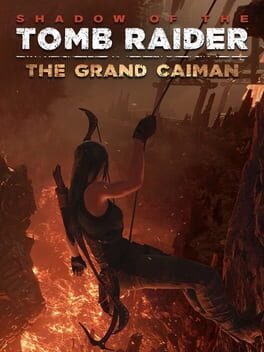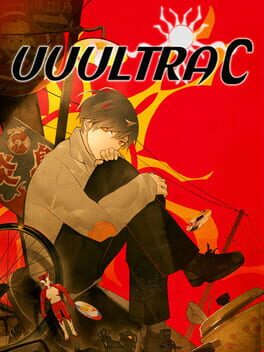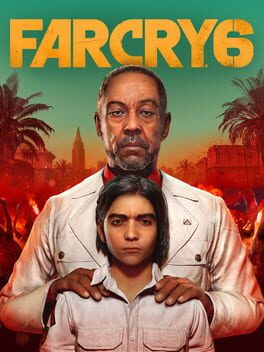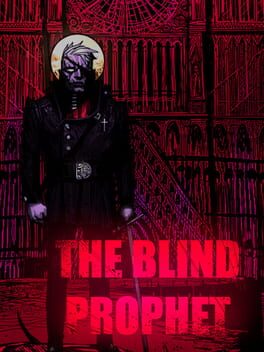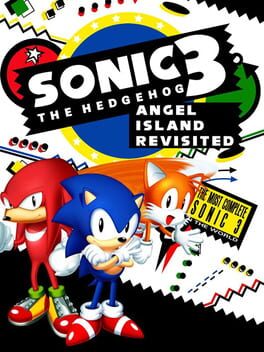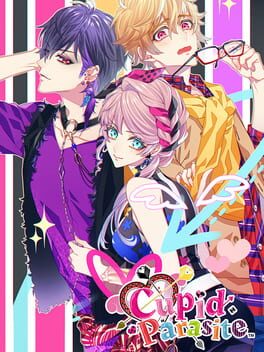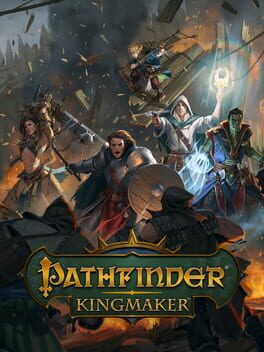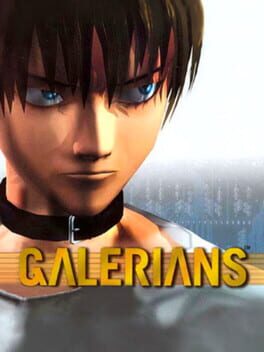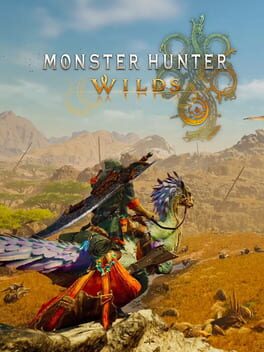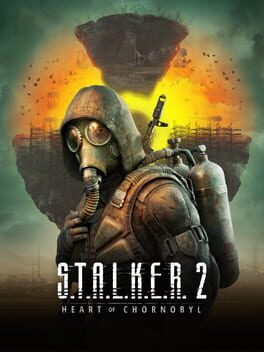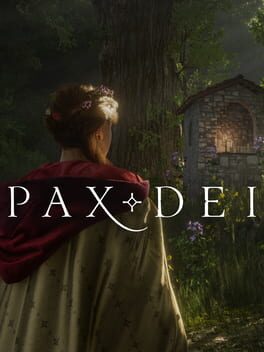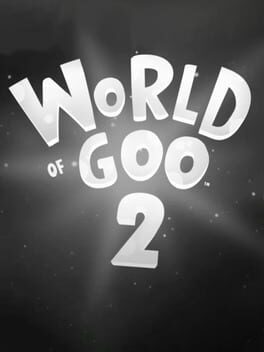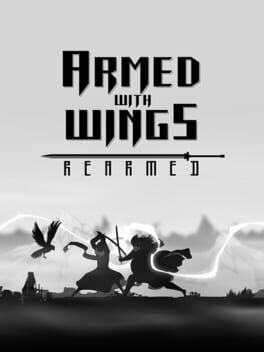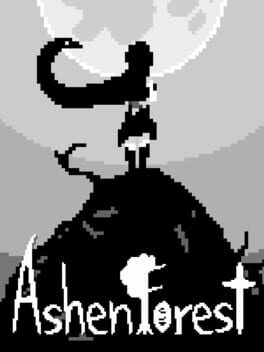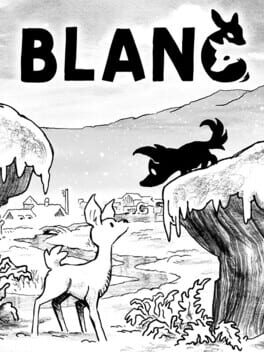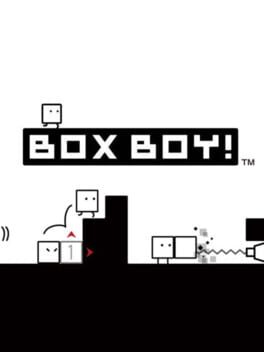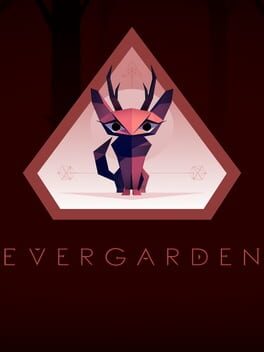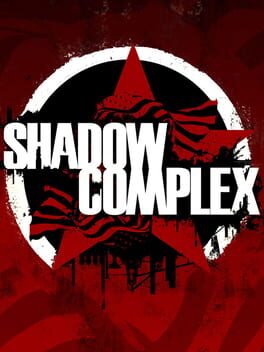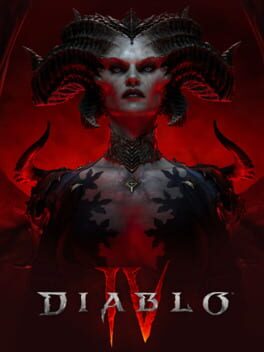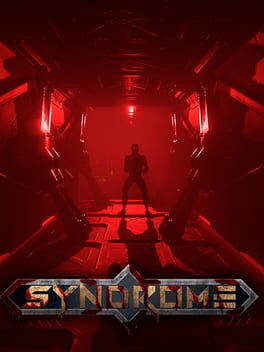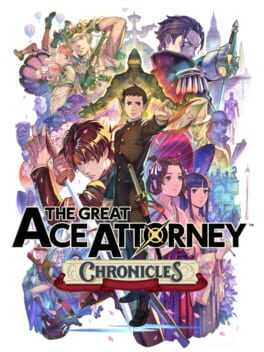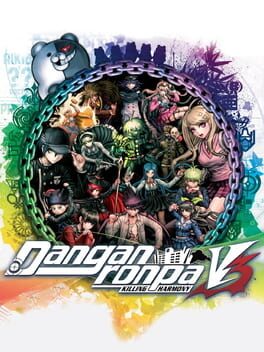CristalKitsch
BACKER
62 reviews liked by CristalKitsch
Completed with 100% of trophies earned. Primarily focused on a set of seven additional challenge tombs, the Challenge Tomb DLC pack provides more of where Shadow of the Tomb Raider most excels, with an impressive variety in the environments and types of puzzle approach. Well-integrated into the game, each tomb is accessible via a bespoke side quest sequence but also individually via the main menu - ideal for attempting the score attack and time trials.
I can see an argument that these could be bulking out the game a little too much beyond the core story, but if you take these as individual challenges I certainly wouldn't complain. As a minor note, the additional outfit and weapon that comes attached to each tomb felt somewhat unnecessary, and the weapons in particular just get lost in an already quite extensive list.
I can see an argument that these could be bulking out the game a little too much beyond the core story, but if you take these as individual challenges I certainly wouldn't complain. As a minor note, the additional outfit and weapon that comes attached to each tomb felt somewhat unnecessary, and the weapons in particular just get lost in an already quite extensive list.
Uuultra C
2020
Hidden Gem.
UUUltra C tem a melhor e mais bela produção visual em uma VN que eu já vi, se utiliza muito bem do literal conceito de Visual Novel, quase não tem sprite, CG pra transição de cena o tempo todo e até usa quadrinização como recurso, o que prende o leitor facilmente, ainda é muito estiloso e abusa do uso de cor. A OST é excelente também, captam perfeitamente o setting, pena que são poucas, o que deixa repetitivo, poderia ter mais composições pela duração que tem.
Em plot, é muito ambicioso, além de discutir sobre identidade e amor, usa Tokusatsu e heroísmo como temática com primor. Eu me impressionei bastante em como a VN mescla essa temática sendo um BL e FUNCIONA, tem ótimos diálogos e personagens bem desenvolvidos, apesar do capítulo 1 ter caído consideravelmente no meu conceito depois de ter concluído, não por ser ruim, mas pelo nível dos outros. O senso de escala é dosado de forma correta, sai de um setting simples para algo transcendental, só que feito de forma natural, progressão muito boa. As H-Scenes tbm não são problemáticas no começo, o que sempre é um problema na mídia, em UUUltra C, são orgânicas, porém, existem sim cenas descartáveis e que forçam a barra, mas nada que destrua a experiência.
Fico feliz por ter superado minhas expectativas e ter sido tão bom assim.
UUUltra C tem a melhor e mais bela produção visual em uma VN que eu já vi, se utiliza muito bem do literal conceito de Visual Novel, quase não tem sprite, CG pra transição de cena o tempo todo e até usa quadrinização como recurso, o que prende o leitor facilmente, ainda é muito estiloso e abusa do uso de cor. A OST é excelente também, captam perfeitamente o setting, pena que são poucas, o que deixa repetitivo, poderia ter mais composições pela duração que tem.
Em plot, é muito ambicioso, além de discutir sobre identidade e amor, usa Tokusatsu e heroísmo como temática com primor. Eu me impressionei bastante em como a VN mescla essa temática sendo um BL e FUNCIONA, tem ótimos diálogos e personagens bem desenvolvidos, apesar do capítulo 1 ter caído consideravelmente no meu conceito depois de ter concluído, não por ser ruim, mas pelo nível dos outros. O senso de escala é dosado de forma correta, sai de um setting simples para algo transcendental, só que feito de forma natural, progressão muito boa. As H-Scenes tbm não são problemáticas no começo, o que sempre é um problema na mídia, em UUUltra C, são orgânicas, porém, existem sim cenas descartáveis e que forçam a barra, mas nada que destrua a experiência.
Fico feliz por ter superado minhas expectativas e ter sido tão bom assim.
Far Cry 6
2021
Quick video review: https://youtu.be/FAHuFTriR0U
I’ve never played a Far Cry game before – so here’s my quick review for Far Cry 6 from a complete newcomer’s perspective.
While I have not played a Far Cry game before, I am familiar with Ubisoft bloat – where you have a decent base game with all the fundamentals on lock and then just an explosion of extra, oftentimes unnecessary stuff on top of it. That perfectly describes my experience with Far Cry 6.
Take the weapon system for example. There are dozens upon dozens of different weapons to choose from and this entire crafting and weapon modification system on top of it. On paper, that sounds great – but in practice, it was basically a waste because I hardly ever needed to use it. Even 20 hours into the game, the weapons I started with were just as strong as the new weapons I was receiving and I never needed to add new modifications – it just felt like I was picking up crafting material for nothing.
Part of this is due to the difficulty – of which there is “Action Mode” and “Story Mode”. Action Mode is supposed to be the more difficult of the two, but I found it to be far too easy. I would just land in an enemy base, one tap all of the enemies with headshots and be done with it – having hardly taken any damage. In my 20-something hours so far, I maybe died five or six times total.
So while it may be a bit too easy, that doesn’t necessarily mean it is not fun. If anything, I enjoyed the base combat. The different guns felt great to use, I loved trying out the different vehicles, and combat abilities added a nice flare to it all. It’s just a shame that it never felt challenging – perhaps a harder difficulty mode is something Ubisoft can add later on.
Story-wise, the game is just okay. It’s your traditional “long live the revolution”-type story with these small guerrilla groups working to take down the island government. There are a couple twists and turns, but nothing too spectacular here – it honestly reminded me a lot of Just Cause 2.
My favorite thing about the game is actually with its map. This is one of those open-world games where there is a TON of stuff to discover. Sometimes I’ll be on my way to a mission and end up taking down this massive military base or uncovering a hidden cache of uranium to build my next cool weapon. It is very easy to get sidetracked and I really liked the mix of urban and tropical environments. You get your cities with their tanks and anti-air and all that, but your jungles with crocodiles and ziplines too. Some very nice variety there and I can easily see myself spending dozens of hours simply exploring it all.
And as I played on PC – I should note the port. It’s a pretty difficult game to run and I had to play at 1080p medium settings on my 1070 Ti just to maintain 60 fps. It usually hovered between 60-80, but it did occasionally dip below (and story cutscenes seemed to be locked to 30 fps regardless). I expected this given the system requirements, but be sure to give them a look yourself before giving it a shot. Otherwise, it ran without issue – no crashes, no freezing, and even no major bugs. Yeah, I had the occasional floating object or funky ragdoll, but I was surprised at how polished it was otherwise.
And that’s pretty much my experience with Far Cry 6 thus far. It’s your typical Ubisoft bloat with tons of unnecessary mechanics and all, but at least the core experience is fun (albeit a little too easy). Combat’s good, vehicles are cool, map design is excellent – I had a good time even as a newcomer to the series. The story is self-contained anyways, so that’s not a problem if you are in the same boat.
I’d say it’s worth a light recommendation. Definitely not something you should buy on launch (or even with a slight discount), but if you can get a pretty good deal on it – it is a fun enough time to warrant giving it a shot.
I’ve never played a Far Cry game before – so here’s my quick review for Far Cry 6 from a complete newcomer’s perspective.
While I have not played a Far Cry game before, I am familiar with Ubisoft bloat – where you have a decent base game with all the fundamentals on lock and then just an explosion of extra, oftentimes unnecessary stuff on top of it. That perfectly describes my experience with Far Cry 6.
Take the weapon system for example. There are dozens upon dozens of different weapons to choose from and this entire crafting and weapon modification system on top of it. On paper, that sounds great – but in practice, it was basically a waste because I hardly ever needed to use it. Even 20 hours into the game, the weapons I started with were just as strong as the new weapons I was receiving and I never needed to add new modifications – it just felt like I was picking up crafting material for nothing.
Part of this is due to the difficulty – of which there is “Action Mode” and “Story Mode”. Action Mode is supposed to be the more difficult of the two, but I found it to be far too easy. I would just land in an enemy base, one tap all of the enemies with headshots and be done with it – having hardly taken any damage. In my 20-something hours so far, I maybe died five or six times total.
So while it may be a bit too easy, that doesn’t necessarily mean it is not fun. If anything, I enjoyed the base combat. The different guns felt great to use, I loved trying out the different vehicles, and combat abilities added a nice flare to it all. It’s just a shame that it never felt challenging – perhaps a harder difficulty mode is something Ubisoft can add later on.
Story-wise, the game is just okay. It’s your traditional “long live the revolution”-type story with these small guerrilla groups working to take down the island government. There are a couple twists and turns, but nothing too spectacular here – it honestly reminded me a lot of Just Cause 2.
My favorite thing about the game is actually with its map. This is one of those open-world games where there is a TON of stuff to discover. Sometimes I’ll be on my way to a mission and end up taking down this massive military base or uncovering a hidden cache of uranium to build my next cool weapon. It is very easy to get sidetracked and I really liked the mix of urban and tropical environments. You get your cities with their tanks and anti-air and all that, but your jungles with crocodiles and ziplines too. Some very nice variety there and I can easily see myself spending dozens of hours simply exploring it all.
And as I played on PC – I should note the port. It’s a pretty difficult game to run and I had to play at 1080p medium settings on my 1070 Ti just to maintain 60 fps. It usually hovered between 60-80, but it did occasionally dip below (and story cutscenes seemed to be locked to 30 fps regardless). I expected this given the system requirements, but be sure to give them a look yourself before giving it a shot. Otherwise, it ran without issue – no crashes, no freezing, and even no major bugs. Yeah, I had the occasional floating object or funky ragdoll, but I was surprised at how polished it was otherwise.
And that’s pretty much my experience with Far Cry 6 thus far. It’s your typical Ubisoft bloat with tons of unnecessary mechanics and all, but at least the core experience is fun (albeit a little too easy). Combat’s good, vehicles are cool, map design is excellent – I had a good time even as a newcomer to the series. The story is self-contained anyways, so that’s not a problem if you are in the same boat.
I’d say it’s worth a light recommendation. Definitely not something you should buy on launch (or even with a slight discount), but if you can get a pretty good deal on it – it is a fun enough time to warrant giving it a shot.
The Blind Prophet
2020
The story is forgettable and wrapped up much faster than I thought it would. The main character is, at best, fine but he's so inconsistent in tone and behavior that it's hard to really latch on to him.
The puzzles are okay, I suppose. They're mostly nothing to write home about except for the ones that are on strict timers but you'd only want to write home about how terrible and frustrating it is to have to die several times just to be able to see what your options to solve the puzzle even are. In the last hour or so the puzzles are replaced by minigames which weren't as bad as I thought they would be but they certainly weren't any good, either.
Also, I thought Christianity was supposed to be all about kindness and forgiveness or whatever but this game sure does have a grudge with sex workers and homeless people and drug users and several other marginalized groups. There is this quiet cruelty to the game where the man sent to supposedly save humanity ends up killing, maiming, and generally terrorizing an awful lot of the people he's supposed to save.
I cannot possibly recommend anyone actually play this game but I would recommend looking up the soundtrack because it legitimately slaps.
The puzzles are okay, I suppose. They're mostly nothing to write home about except for the ones that are on strict timers but you'd only want to write home about how terrible and frustrating it is to have to die several times just to be able to see what your options to solve the puzzle even are. In the last hour or so the puzzles are replaced by minigames which weren't as bad as I thought they would be but they certainly weren't any good, either.
Also, I thought Christianity was supposed to be all about kindness and forgiveness or whatever but this game sure does have a grudge with sex workers and homeless people and drug users and several other marginalized groups. There is this quiet cruelty to the game where the man sent to supposedly save humanity ends up killing, maiming, and generally terrorizing an awful lot of the people he's supposed to save.
I cannot possibly recommend anyone actually play this game but I would recommend looking up the soundtrack because it legitimately slaps.
Bloodborne
2015
Beaten: Mar 19 2022
Time: 17 Hours
Platform: PS5
It was interesting, coming to Bloodborne so late in my souls journey. Usually I hear this is the best place to start, as it teaches the best habits and, barring a few early bosses, doesn’t have as much BS as the ones it’s following up. With Elden Ring having just come out though, that title is up for grabs again.
Now, where I stand on this is probably obvious. I didn’t start with Elden Ring per se, but it was the first one I really got. The way it is so explicit about telling you “yes, if you get stuck, you can go do something else. it’s ok” is the piece I was missing, and the freedom in build and playstyle really supported that. Bloodborne has a very different idea of introducing new players to these games. Bloodborne’s opening is tough. Tough and much more specific in what it wants from you. Bloodborne’s combat is built much less freely than the other souls games, with a much heavier emphasis on a “dodge - parry - punish” flow. Broadly it has the same controls as other souls games, but dodging is significantly faster than it was before, and parrying is less limited. There’s also wayyy less weapons in this game. All of the weapons are trick weapons though, weapons that can shift between different forms of varying speed and power mid combo, with monster hunter-esque fluidity.
In fact the game feels like a move towards a more pure action-game philosophy. It’s still, at it’s heart, a souls game through and through, but it calls on you to be more aggressive, less cautious, and more risky. Even using one of the slower weapons all game, I felt like I was moving at lightning speed compared to Dark Souls II (developed concurrently), being able to dash-dash-dash-SLAM under some gargantuan unpercievable beast, far out of the way of their instinctual swipes.
There’s still loads of options with builds, but that style seems much more pushed than it is in the surrounding games, in a way that seems to foreshadow the creation of Sekiro, FromSoft’s full try at a purer action game (with some vestigial souls elements still). If you’re receptive to this style, or love the aesthetic enough to learn it anyways, you’ll do fine. Past the first few bosses the game kind of melts in your mouth, never quite losing its edge but never hitting the frustrating spaces its predecessors often fell into.
Speaking of the aesthetic, it’s obviously fantastic. Cosmic horror realized in full detail, or at least as full as you can realize things beyond human perception. The story revolves around perception as well, hitting hard on the duality between blissful ignorance and the horror that lurks behind that ignorance. Unfortunately for me, it’s not as much my thing as the less cosmic, more occult dark fantasy stylings of the main souls series. Still, what’s been achieved here is stunning, constantly.
I might think ER is a better starting point, but Bloodborne is a tried and tested entry point as well, and a great game at that.
Time: 17 Hours
Platform: PS5
It was interesting, coming to Bloodborne so late in my souls journey. Usually I hear this is the best place to start, as it teaches the best habits and, barring a few early bosses, doesn’t have as much BS as the ones it’s following up. With Elden Ring having just come out though, that title is up for grabs again.
Now, where I stand on this is probably obvious. I didn’t start with Elden Ring per se, but it was the first one I really got. The way it is so explicit about telling you “yes, if you get stuck, you can go do something else. it’s ok” is the piece I was missing, and the freedom in build and playstyle really supported that. Bloodborne has a very different idea of introducing new players to these games. Bloodborne’s opening is tough. Tough and much more specific in what it wants from you. Bloodborne’s combat is built much less freely than the other souls games, with a much heavier emphasis on a “dodge - parry - punish” flow. Broadly it has the same controls as other souls games, but dodging is significantly faster than it was before, and parrying is less limited. There’s also wayyy less weapons in this game. All of the weapons are trick weapons though, weapons that can shift between different forms of varying speed and power mid combo, with monster hunter-esque fluidity.
In fact the game feels like a move towards a more pure action-game philosophy. It’s still, at it’s heart, a souls game through and through, but it calls on you to be more aggressive, less cautious, and more risky. Even using one of the slower weapons all game, I felt like I was moving at lightning speed compared to Dark Souls II (developed concurrently), being able to dash-dash-dash-SLAM under some gargantuan unpercievable beast, far out of the way of their instinctual swipes.
There’s still loads of options with builds, but that style seems much more pushed than it is in the surrounding games, in a way that seems to foreshadow the creation of Sekiro, FromSoft’s full try at a purer action game (with some vestigial souls elements still). If you’re receptive to this style, or love the aesthetic enough to learn it anyways, you’ll do fine. Past the first few bosses the game kind of melts in your mouth, never quite losing its edge but never hitting the frustrating spaces its predecessors often fell into.
Speaking of the aesthetic, it’s obviously fantastic. Cosmic horror realized in full detail, or at least as full as you can realize things beyond human perception. The story revolves around perception as well, hitting hard on the duality between blissful ignorance and the horror that lurks behind that ignorance. Unfortunately for me, it’s not as much my thing as the less cosmic, more occult dark fantasy stylings of the main souls series. Still, what’s been achieved here is stunning, constantly.
I might think ER is a better starting point, but Bloodborne is a tried and tested entry point as well, and a great game at that.
The star rating is NOT for A.I.R as a project. For what it sets out to do, it does a stellar job - for widescreen alone, plus other neat tweaks, it's totally the definitive way to play Sonic 3 & Knuckles. Major kudos to the people who run that project.
I cannot, however, avoid the fact that I don't hold Sonic 3&K to the high regard that most others do. 3&K is an ambitious, remarkable feat for the Genesis, and is probably the best damn platformer on the system. It looks wonderful, sounds wonderful, each level is distinct and memorable and designed as if they were physical places as opposed to video game levels. I'll give Sonic 3&K all of that much.
It's a damn solid game at best. There are moments where I was really having a blast. Thing is, 3&K is more interested in testing the player's patience than anything. A lot of crushers. Super Emerald stages and the fact that Giant Rings are one-and-dones for a whole save file. Sending the player in circles. Careening Sonic into a hazard or enemy that you couldn't avoid in time (and this is something that the extra screen space can't fix, even if it's so much bigger of a help than you could ever imagine). Et cetera. Honestly, the fact that I spent a chunk of time cross-referencing Giant Ring locations and how to not get lost in Blue Sphere stages (the regular ones are fine, mind), only to notice that I'd end up not having much time with the reaps of my reward? [Cuz Hyper Sonic is fucking cool] It kinda stung. Especially with how painful Death Egg felt - especially when I went into a slot machine bonus stage with over 150 rings, and left with 0.
Sonic 3&K is good. It's fun. It's an exercise in frustration, but I liked it fine enough. Granted, it begs the question of "If I don't like to be challenged to this degree in a video game, and I am unable to find myself focusing on a video game for more than a certain period of time, then what do I look for a game?"
That's a good question. I don't really know the answer.
I cannot, however, avoid the fact that I don't hold Sonic 3&K to the high regard that most others do. 3&K is an ambitious, remarkable feat for the Genesis, and is probably the best damn platformer on the system. It looks wonderful, sounds wonderful, each level is distinct and memorable and designed as if they were physical places as opposed to video game levels. I'll give Sonic 3&K all of that much.
It's a damn solid game at best. There are moments where I was really having a blast. Thing is, 3&K is more interested in testing the player's patience than anything. A lot of crushers. Super Emerald stages and the fact that Giant Rings are one-and-dones for a whole save file. Sending the player in circles. Careening Sonic into a hazard or enemy that you couldn't avoid in time (and this is something that the extra screen space can't fix, even if it's so much bigger of a help than you could ever imagine). Et cetera. Honestly, the fact that I spent a chunk of time cross-referencing Giant Ring locations and how to not get lost in Blue Sphere stages (the regular ones are fine, mind), only to notice that I'd end up not having much time with the reaps of my reward? [Cuz Hyper Sonic is fucking cool] It kinda stung. Especially with how painful Death Egg felt - especially when I went into a slot machine bonus stage with over 150 rings, and left with 0.
Sonic 3&K is good. It's fun. It's an exercise in frustration, but I liked it fine enough. Granted, it begs the question of "If I don't like to be challenged to this degree in a video game, and I am unable to find myself focusing on a video game for more than a certain period of time, then what do I look for a game?"
That's a good question. I don't really know the answer.
Cupid Parasite
2020
Full video review: https://youtu.be/ksBqPhPvPrI
Right as I finish up Olympia Soirée and we already got another big otome release from the same studio, perfect timing!
Setting/Story
Cupid Parasite takes place in the fictionalized city of Los York, which, yes, means that the game is actually set in America instead of Japan. The setting plays heavily into the story, with this overall “Hollywood romantic movie” theme – and honestly, it works really well for an otome storyline.
You get the game’s version of some trashy American reality TV show, a plot structure that follows the typical highs and lows of a big budget Hollywood film, and – as if that wasn’t enough – this whole other story layer based in Roman mythology. It’s a bit ridiculous at times, but it’s not really one of those romance stories where logic applies and sometimes that’s just the kind of romance I want to read.
Characters
You’ve got the shy, yet extremely loyal writer that is lost in his own one-sided love, the fashion designer that seems more interested in his work than what goes on around him, the movie star that is weirdly addicted to Greek and Roman mythology, the womanizer that is only interested in ladies that are already in a relationship, and the company CEO that values his status above all else.
They’re all interesting in their own right, but my favorites ended up being Gill and Shelby. Gill’s route in particular is a great place to start – it hits all the highs you would expect from a Hollywood romcom, but blending the elements unique to Cupid Parasite all into this one nice package. The only character I outright disliked was Raul, the movie star. His character quirk just came off as annoying to me, even if it does get explained in his route.
Writing
The pacing is generally pretty fast across the board, which is good in that it lets you get right into the good stuff, but bad in that conflicts that do arise are resolved before they’ve been given proper exploration and it can come across as rushed. That and the story does use the occasional cheap trope or two to throw in some quick drama.
And while the story may get serious at times, it never really escapes that “bright and colorful romcom” feel – and that’s not even a bad thing. I just played Olympia Soirée, which dealt with some pretty heavy topics, so it was nice to just sit back and play through something that is just over the top and fun for the sake of it.
Art/Music
The art is like a color explosion, with these super vivid character designs, background art that is all sorts of… things at once, and an overall aesthetic that just oozes style. The music too. Been a while since a VN opened with a backing track that just grabbed me right from the start – but Cupid Parasite did just that.
Overall
Cupid Parasite is well-deserving of a recommendation. Whether you’re an otome fan or not, the story here is some really fun stuff – going from over-the-top romcom to drama with mythological undertones. I enjoyed getting to know each of the characters and really just getting into the super-vibrant setting, it is very unique for a VN and worth a look for just that alone. It may have its hiccups, but it is easily the best otome I’ve played this year.
Right as I finish up Olympia Soirée and we already got another big otome release from the same studio, perfect timing!
Setting/Story
Cupid Parasite takes place in the fictionalized city of Los York, which, yes, means that the game is actually set in America instead of Japan. The setting plays heavily into the story, with this overall “Hollywood romantic movie” theme – and honestly, it works really well for an otome storyline.
You get the game’s version of some trashy American reality TV show, a plot structure that follows the typical highs and lows of a big budget Hollywood film, and – as if that wasn’t enough – this whole other story layer based in Roman mythology. It’s a bit ridiculous at times, but it’s not really one of those romance stories where logic applies and sometimes that’s just the kind of romance I want to read.
Characters
You’ve got the shy, yet extremely loyal writer that is lost in his own one-sided love, the fashion designer that seems more interested in his work than what goes on around him, the movie star that is weirdly addicted to Greek and Roman mythology, the womanizer that is only interested in ladies that are already in a relationship, and the company CEO that values his status above all else.
They’re all interesting in their own right, but my favorites ended up being Gill and Shelby. Gill’s route in particular is a great place to start – it hits all the highs you would expect from a Hollywood romcom, but blending the elements unique to Cupid Parasite all into this one nice package. The only character I outright disliked was Raul, the movie star. His character quirk just came off as annoying to me, even if it does get explained in his route.
Writing
The pacing is generally pretty fast across the board, which is good in that it lets you get right into the good stuff, but bad in that conflicts that do arise are resolved before they’ve been given proper exploration and it can come across as rushed. That and the story does use the occasional cheap trope or two to throw in some quick drama.
And while the story may get serious at times, it never really escapes that “bright and colorful romcom” feel – and that’s not even a bad thing. I just played Olympia Soirée, which dealt with some pretty heavy topics, so it was nice to just sit back and play through something that is just over the top and fun for the sake of it.
Art/Music
The art is like a color explosion, with these super vivid character designs, background art that is all sorts of… things at once, and an overall aesthetic that just oozes style. The music too. Been a while since a VN opened with a backing track that just grabbed me right from the start – but Cupid Parasite did just that.
Overall
Cupid Parasite is well-deserving of a recommendation. Whether you’re an otome fan or not, the story here is some really fun stuff – going from over-the-top romcom to drama with mythological undertones. I enjoyed getting to know each of the characters and really just getting into the super-vibrant setting, it is very unique for a VN and worth a look for just that alone. It may have its hiccups, but it is easily the best otome I’ve played this year.
Pathfinder Kingmaker is another game in the cRPG 'renaissance' of the past six years, and one that I have been slowly playing over the past year or so (jeez!). So you may have noticed the "beaten" tag on this one - yeah 80 hours in and I still have not finished the game. In fact, I'm still only in Act 4 of 7. Now, about 20~25 hours of that is my original playthrough from when I first got the game but I restarted a couple of months back when I decided to really give it another go. So this is another game I did not really finish per the intent of this challenge, but I put such a time investment into it and I have such thoughts about it that I'm going to count it anyway, alright???
So the time invested here presents an interesting conundrum - if I liked it enough to play 80 hours, why didn't I finish it? I've played really long games before, why not this one? If I got so damn tired of it I didn't want to even keep playing any more (despite setting the entire Kingdom mechanic on auto and using cheats to speed along several other parts of the game) then I must not have liked it right? Well it's complicated alright! So much of the game is great - the combat is damn damn good, the writing is overall pretty solid, companions are all at least pretty good, the art style is pleasant and the music is near enough to top notch. So what's the hold up, Modest? The pacing is fucking garbage, that's what.
While most cRPGs post-2000s I feel are in some way a response to Baldur's Gate, either in aping or repudiating it (a pretty simple judgement on my part but stick with me) and Kingmaker is VERY much a spiritual successor to Baldur's Gate I, even moreso than BG2 itself was. Kingmaker is all about having an expansive world map and making your way about, making discoveries, having random combat encounters and meeting strange new folk - adventure!! And in a way, it does that exceptionally well. It is more 'open world' than I believe any other game I have played and it is stuffed to the brim with content. And all that stuff you find? It's pretty darn good, most of the time. Interesting enemies, engaging story or characters, ethical dilemmas... But there's JUST. SO. MUCH. The world map could take upwards of 5~ minutes to walk across WITHOUT any encounters along the way and you're just watching your pawn slide across the exact same map you've been looking at for dozens of hours... There's a main story of course, and companions who follow you who have their own story, but honestly that must account for MAYBE 10-15% of my play time? The amount of sheer BUSYWORK is just neverending.
Speaking of neverending busywork - the entire Kingdom management mechanic. Is it neat in its own way? Of course it is! You get to pick your advisors in each area of ruling to handle the little shit, and every few days a problem comes to you in the throneroom and you get to rule on it. Sounds neat? It is! Then it happens 1000 times in the first 30 hours and basically none of it means a single god damn thing other than the kingdom stats notching up and down a few points and you just get tired... Oh and you have to watch all the same little animations over and over and over each time....
So to get to the main point - nothing about Pathfinder Kingmaker is bad. But on the flip side - basically nothing is genuinely GREAT either. The combat gets pretty close but only with the turn based mod - and that ends up just slowing down the proceedings even more. The characters are pretty good, but no one is great. The art is nice, but generic. The quests you stumble over are at least a bit interesting, but nothing that genuinely pulls the heart strings or gets the blood pumping. The main quest line is very good and all but it is at most 20% of the actual content you will be DOING in the game which makes it tiring to slog towards. Also there is 'missable' events in your kingdom that can lower your stats and potentially end the game, which makes skipping time towards the main content feel risky each time you do it..
It's been a long time since I did this, stopping a game only most of the way through to review it. With Sekiro and Mario Odyssey last year though it was due to pretty bitter disappointment - with Pathfinder its more a bittersweet resignation - I quite liked everything the game had to offer - it just went too far out of its way to keep me wading through mud to get to the good stuff.
So the time invested here presents an interesting conundrum - if I liked it enough to play 80 hours, why didn't I finish it? I've played really long games before, why not this one? If I got so damn tired of it I didn't want to even keep playing any more (despite setting the entire Kingdom mechanic on auto and using cheats to speed along several other parts of the game) then I must not have liked it right? Well it's complicated alright! So much of the game is great - the combat is damn damn good, the writing is overall pretty solid, companions are all at least pretty good, the art style is pleasant and the music is near enough to top notch. So what's the hold up, Modest? The pacing is fucking garbage, that's what.
While most cRPGs post-2000s I feel are in some way a response to Baldur's Gate, either in aping or repudiating it (a pretty simple judgement on my part but stick with me) and Kingmaker is VERY much a spiritual successor to Baldur's Gate I, even moreso than BG2 itself was. Kingmaker is all about having an expansive world map and making your way about, making discoveries, having random combat encounters and meeting strange new folk - adventure!! And in a way, it does that exceptionally well. It is more 'open world' than I believe any other game I have played and it is stuffed to the brim with content. And all that stuff you find? It's pretty darn good, most of the time. Interesting enemies, engaging story or characters, ethical dilemmas... But there's JUST. SO. MUCH. The world map could take upwards of 5~ minutes to walk across WITHOUT any encounters along the way and you're just watching your pawn slide across the exact same map you've been looking at for dozens of hours... There's a main story of course, and companions who follow you who have their own story, but honestly that must account for MAYBE 10-15% of my play time? The amount of sheer BUSYWORK is just neverending.
Speaking of neverending busywork - the entire Kingdom management mechanic. Is it neat in its own way? Of course it is! You get to pick your advisors in each area of ruling to handle the little shit, and every few days a problem comes to you in the throneroom and you get to rule on it. Sounds neat? It is! Then it happens 1000 times in the first 30 hours and basically none of it means a single god damn thing other than the kingdom stats notching up and down a few points and you just get tired... Oh and you have to watch all the same little animations over and over and over each time....
So to get to the main point - nothing about Pathfinder Kingmaker is bad. But on the flip side - basically nothing is genuinely GREAT either. The combat gets pretty close but only with the turn based mod - and that ends up just slowing down the proceedings even more. The characters are pretty good, but no one is great. The art is nice, but generic. The quests you stumble over are at least a bit interesting, but nothing that genuinely pulls the heart strings or gets the blood pumping. The main quest line is very good and all but it is at most 20% of the actual content you will be DOING in the game which makes it tiring to slog towards. Also there is 'missable' events in your kingdom that can lower your stats and potentially end the game, which makes skipping time towards the main content feel risky each time you do it..
It's been a long time since I did this, stopping a game only most of the way through to review it. With Sekiro and Mario Odyssey last year though it was due to pretty bitter disappointment - with Pathfinder its more a bittersweet resignation - I quite liked everything the game had to offer - it just went too far out of its way to keep me wading through mud to get to the good stuff.
Galerians
1999
"Where did your true self go? You are now nothing but an empty vessel pretending to be human. "
There's a pounding in my head it hurts its screaming its crying my heart is beating too fast way too fast it's gonna burst my hands are cold my skin is cold my skin is hot its too hot too hot too hot too hot too-
The Delmeter finally kicks in, and the splitting headache fades. The world stops spinning and I can finally feel my own two feet. There's a corpse by feet, it's face a gnarled mess barely recognizable as human. There's blood pooling beneath my shoes, and I can feel the Delmeter fading already.
Galerians is a 2000's survival horror game about Rion, a young boy who wakes up in a hospital, with no memories of his past and a sudden batch of psychic powers, who's only motivation is to locate the girl who's been contacting him telepathically. In doing so, he unravels a conspiracy surrounding the sentient supercomputer running the city that wants to replace humanity with a race of psychic superhumans known as the Galerians, and how the girl he's looking for is the key to stopping the AI's ascension to godhood.
As Rion, you have to manage your limited psychic powers via the multiple types of drugs you will inject and ingest over the course of your adventure. Rion can switch between different types of psychic attacks by injecting himself with three different types of drugs, and each attack used will slowly drain your drug meter until you need your next fix. Compounding your limited usage of Rion's psychic powers is the AP meter. By attacking, taking damage, or even simply running around, the AP Meter will fill, and if it hits max and Rion tries to use a psychic attack, he will Short, making him a walking death trap that will instantly kill all enemies that come near, but will slowly drain Rion's HP until he either dies or takes another drug called Delmeter (of which there is only a finite amount of in the whole game) to reset the gauge to 0. The limited resources, alongside the ticking time bomb that is the AP Meter heavily discourages combat in Galerians. Outside of a few forced encounters, combat is completely optional and provides no tangible benefits for Rion, meaning that in true survival horror fashion, hoofing it is usually your best option in any given situation.
The puzzle solving is fairly simple, usually consisting of key hunting and very basic fact recollection. Rion can use his psychic powers to gain hints for item locations and puzzle solutions, which means that it's very hard to get truly stumped. While the puzzle solving is basic, the moment-to-moment gameplay is mind-numbing and the combat is rather clunky when you're forced into it, Galerians' aesthetic is what really makes it stand out. The story is a wild ride full of insane plot twists and heady themes that aren't really tackled in a very deep or clever manner, but this alongside the sparse moments of Scanners-esque ultraviolence and beautifully rendered early 2000's CGI cyberpunk landscapes full of alien architecture and that glorious Y2K technological aesthetic elevate Galerians from a mediocre Resident Evil clone to an absolute standout hidden gem of the survival horror genre.
There's a pounding in my head it hurts its screaming its crying my heart is beating too fast way too fast it's gonna burst my hands are cold my skin is cold my skin is hot its too hot too hot too hot too hot too-
The Delmeter finally kicks in, and the splitting headache fades. The world stops spinning and I can finally feel my own two feet. There's a corpse by feet, it's face a gnarled mess barely recognizable as human. There's blood pooling beneath my shoes, and I can feel the Delmeter fading already.
Galerians is a 2000's survival horror game about Rion, a young boy who wakes up in a hospital, with no memories of his past and a sudden batch of psychic powers, who's only motivation is to locate the girl who's been contacting him telepathically. In doing so, he unravels a conspiracy surrounding the sentient supercomputer running the city that wants to replace humanity with a race of psychic superhumans known as the Galerians, and how the girl he's looking for is the key to stopping the AI's ascension to godhood.
As Rion, you have to manage your limited psychic powers via the multiple types of drugs you will inject and ingest over the course of your adventure. Rion can switch between different types of psychic attacks by injecting himself with three different types of drugs, and each attack used will slowly drain your drug meter until you need your next fix. Compounding your limited usage of Rion's psychic powers is the AP meter. By attacking, taking damage, or even simply running around, the AP Meter will fill, and if it hits max and Rion tries to use a psychic attack, he will Short, making him a walking death trap that will instantly kill all enemies that come near, but will slowly drain Rion's HP until he either dies or takes another drug called Delmeter (of which there is only a finite amount of in the whole game) to reset the gauge to 0. The limited resources, alongside the ticking time bomb that is the AP Meter heavily discourages combat in Galerians. Outside of a few forced encounters, combat is completely optional and provides no tangible benefits for Rion, meaning that in true survival horror fashion, hoofing it is usually your best option in any given situation.
The puzzle solving is fairly simple, usually consisting of key hunting and very basic fact recollection. Rion can use his psychic powers to gain hints for item locations and puzzle solutions, which means that it's very hard to get truly stumped. While the puzzle solving is basic, the moment-to-moment gameplay is mind-numbing and the combat is rather clunky when you're forced into it, Galerians' aesthetic is what really makes it stand out. The story is a wild ride full of insane plot twists and heady themes that aren't really tackled in a very deep or clever manner, but this alongside the sparse moments of Scanners-esque ultraviolence and beautifully rendered early 2000's CGI cyberpunk landscapes full of alien architecture and that glorious Y2K technological aesthetic elevate Galerians from a mediocre Resident Evil clone to an absolute standout hidden gem of the survival horror genre.
4 lists liked by CristalKitsch
